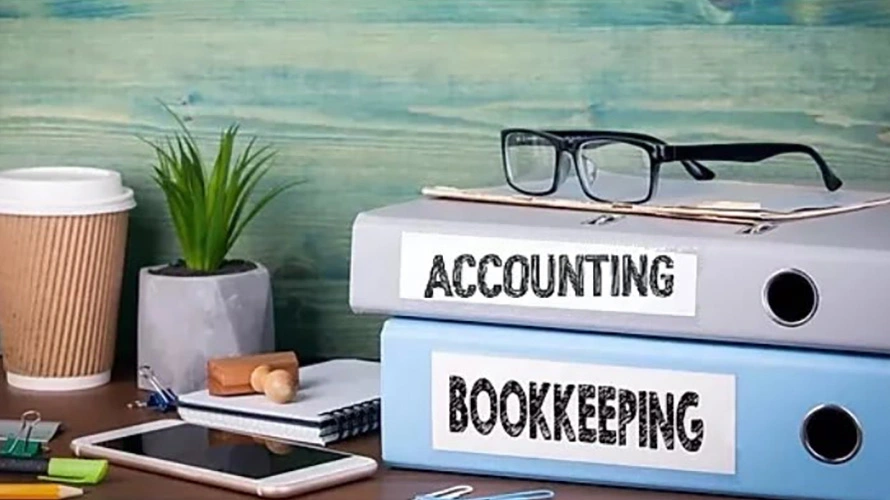Financial aspects and knowing all the details about expenditure and total revenue are the only way for any business to operate and grow. The same rule applies to Shopify and Amazon beginners, as two crucial aspects are accounting and bookkeeping. This can seem way too complicated at first, which is why learning the basics is the first and most important step.
Learning the basics

Although bookkeeping and accounting might seem too complicated for people without experience, it is just like with everything else – being persistent and learning the basics is the first step one should take. Each beginning is challenging, but it is important to start slowly and set aside enough time to understand every aspect of bookkeeping and accounting. Yes, time is the crucial factor here, as the more time you spend learning the ropes of how it all works, the more you will learn and the easier every action will become.
Once you realize where to start and follow the steps, it will be much simpler than it seems, but if it is still too complicated for you, maybe using a website with professional help is a better idea. Namely, plenty of specialized sites designed precisely for this purpose can be of much help, especially for those entirely new to all this. Of course, you should find a reliable one, which can be a little challenging because of the vast offer, and if you do not know where to look and need online accounting services, we got your back.
What are they?
Many people are not sure what accounting and bookkeeping are, and as we have already mentioned, it is crucial to learn the basics, and these two for sure represent those basic things. Both terms are about the financial aspects and activities of the company, and because of that, many people are afraid of trying to perform them on their own because they think that even one small mistake can create a real disaster. Now, even though this isn’t entirely true, there are certain aspects and mistakes that can be harmful, especially if one doesn’t even realize the mistake occurred.
Bookkeeping

As for bookkeeping, we should mention that it is an important process in which we record and manage all the transactions made for our company and use the obtained results to make the strategy for improving cash flow management. We record each transaction, which means that every purchase and sale needs to be written down, which we later use when it is necessary to make well-informed decisions. Of course, there are many other reasons why bookkeeping is important, but for starters, having all the info about the purchases and sales is definitely something you can later use to improve your company and grow.
Accounting
Accounting is similar but still different enough, and it implies different activities about the financial aspects of one company necessary for measurement, communication, and processing of the finances. Now, don’t let these terms confuse you, as it’s in everyone’s interest in the company to know where every penny was spent so that if any potential problem occurs, you will know precisely where some mistake happened. By keeping records about taxes, payroll, management, inventory, and acquisition, we are able to measure our company’s success at every given moment and see what changes should be made in the future, so that company will prosper.
As you can see, it’s all about improving and growing as a business, and just like keeping track of all the expenses is important, so is knowing where the money has been spent. Yes, sometimes this might seem dull or a job that’s way too difficult to track and do due to so many transactions, but it’s still an essential part of every successful business.
Understanding different types of accounts
In order to start bookkeeping on your own, you will need to learn more about the basic types of accounts that you will see often, and depending on the specifics of the task and company, this number can vary, but we will further discuss five of them.
1. Assets

The first one is reserved for assets and represents all the value the company owns, thanks to different financial transactions. It is not only about the money on the accounts as it also implies the inventory that one company owns. That is why we can often see that the term asset is used to describe all patterns, production design, buildings, distribution rights, commercial rights, etc., as, in general, this term alone represents everything one person, or the company in this case, owns.
2. Liabilities
When it comes to liabilities, here we have the debts and obligations the company needs to pay to different banks, authorities, and people who provide it with various goods and services when necessary. Probably the best way to describe them is by stating that they are entirely in contrast with assets. Namely, while assets are used to describe and measure the financial impact and power of the company, liabilities are, on the other hand, used to measure all potential expenditures known at that moment.
3. Revenue
Each company earns money by making some sales or providing some services, as it is the main point of its existence, and the money earned in this way is called revenues or income. They are used to measure how potent some company is as it covers everything from net sales to wage expenses, which is why revenue probably gives the best insight into the financial power and impact of some companies.
4. Expenses
Of course, owning a company means having some expenses, and it is the money we use to pay for different services used or assets bought. There are two main types – operating expenses and non-operating expenses, and both are equally important.
5. Equity
In the end, we have equity which represents all the money left after all the liabilities and expenses are paid, which is the profit the owner has. They represent the financial representation of the ownership of a business and cover various grounds to provide a deep insight into the company’s financial status.









